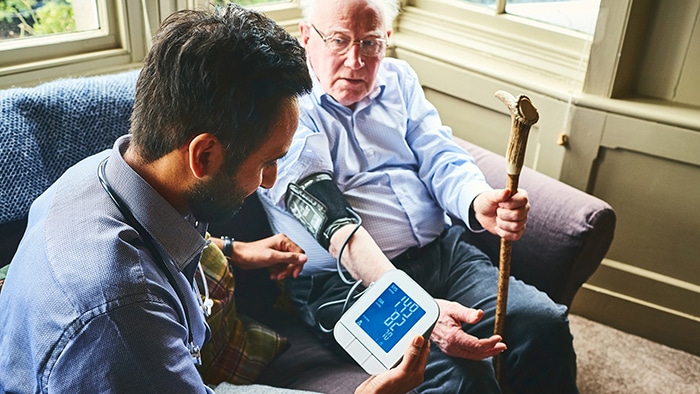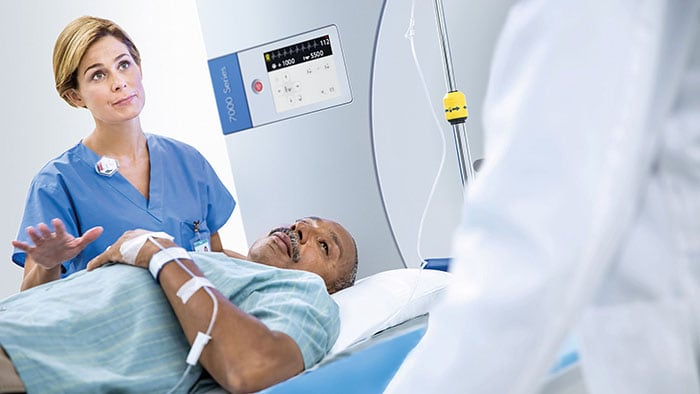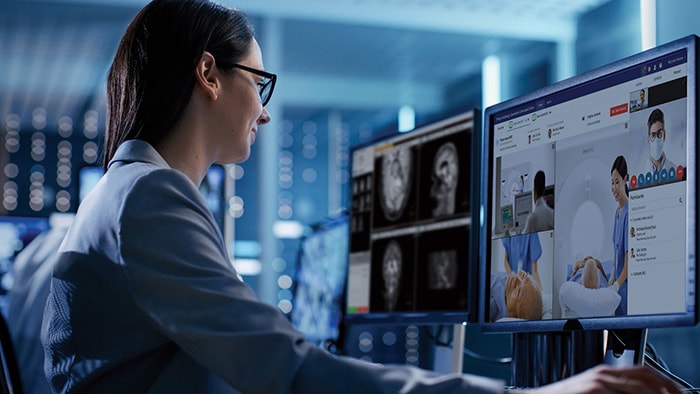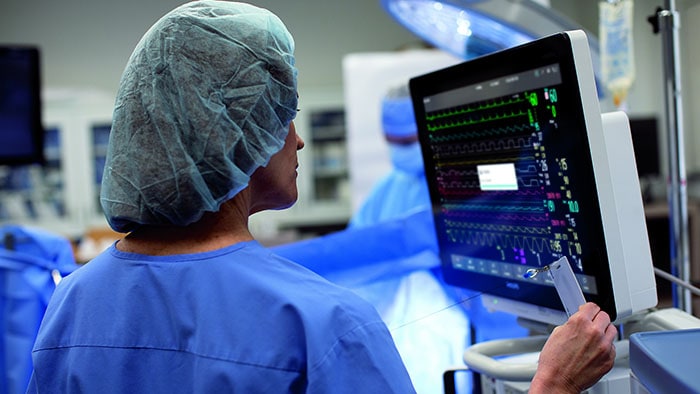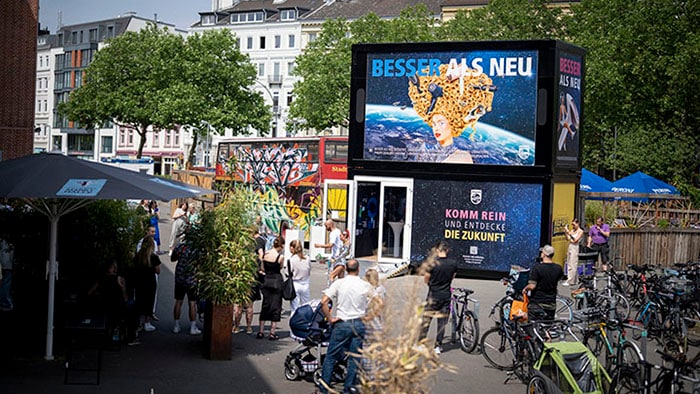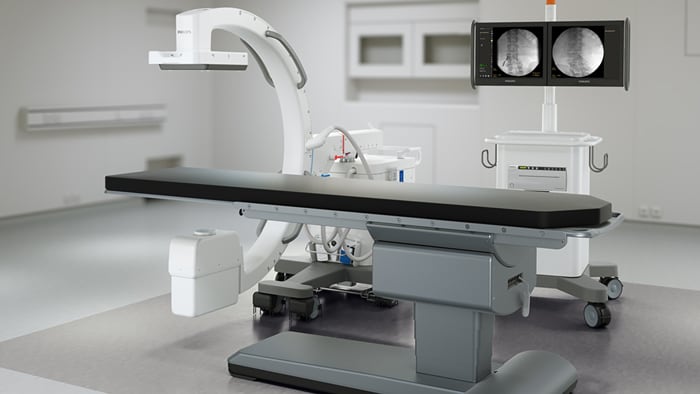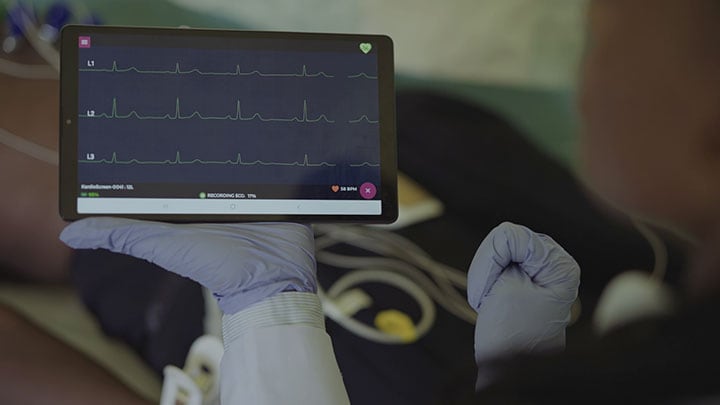Jun 12, 2016
Philips Community Life Center
In many Sub-Sahara African countries primary health facilities face enormous difficulties in offering quality basic services to local communities. Philips believes that the strengthening of health systems has to start at the primary level. Collaborating with local governments, Philips is developing Community Life Centers that provides a total solution for primary healthcare facilities with the aim of not only improving healthcare but also enabling community development. In Kiambu, Kenya, the installation of a Community Life Center saw the number of patients visiting increase to 4,000 patients per month, from 1,000 patients previously. The Philips Community Life Center (CLC) offers a community driven, holistic approach to improving primary healthcare. The CLC goes beyond the provision of healthcare by turning a health facility into a community hub.
The CLC is an integrated modular solution that includes the following: · Solar PV system - for a reliable and clean energy supply · Indoor and outdoor LED-lighting - enabling extended operating hours and providing security to patients and staff · Medical devices - for improved patient monitoring, diagnosis and triage · Laboratory equipment – for a broad range of services · Refrigeration - for vaccines and medicines · IT solutions - for efficient operation of the clinic, connection with the community and the rest of the healthcare system · Water supply and purification - to prevent waterborne diseases

The CLC is a turn-key solution that can be configured to meet the needs of each facility, and includes staff training and community mobilization. Part of the offering is a long term (five years or more) comprehensive monitoring and support service provided by Philips and its collaborators to ensure sustainability and continuous improvement of health outcomes. This service includes, amongst other things, remote and on-site monitoring of equipment and healthcare processes, repair and maintenance, helpdesk support and regular refresher trainings for facility staff and community health workers. Strengthening primary healthcare requires a comprehensive solution Philips has been present in Africa for over 100 years, and during this time has gained a deep understanding of the main challenges facing primary healthcare. Issues range from unavailability of qualified healthcare workers to lack of electricity, water and basic healthcare technology. While many projects focus on tackling the issues one at a time, they often don’t deliver the expected result because the other issues are not being addressed. This was Philips’ starting point for developing the CLC solution – Philips aimed to bring significant and sustainable improvement by addressing all causes in one comprehensive solution.
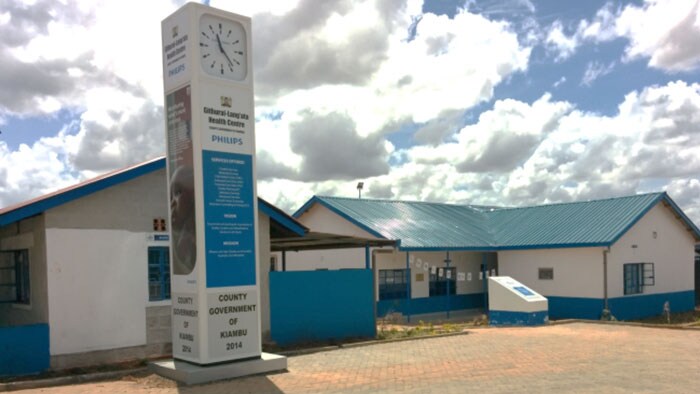
Enabling community development
Philips involves community members in the assessment and design of the CLC
in order to create ownership. The solution is tailored to the needs of the facility and the community. Philips trains the staff and mobilizes the community to make use of the improved services of the facility. The CLC provides community members the opportunity to purchase clean water and healthy living products and benefit from outdoor lighting for community gatherings, and for children studying at night. This helps attract community members to the facility – allowing for awareness raising and education on health-related issues – and creates an opportunity to generate revenues from products sales and services offered to the community, reducing the dependence of the facility on government funding.

Solar power
The majority of primary health facilities in Africa are not connected to the grid, and those that are still don’t have a stable and reliable supply of electricity. As part of the CLC solution, Philips has designed a solar system that is strong enough to power the entire center with reliable, clean energy. This supply is critical to its effectiveness and enables it to run successfully. For example, it can be used to power a refrigerator, which means the health clinic can store vaccinations and medicine. The power supply is also used to run the range of healthcare equipment that Philips needs for the clinic, as without this many of the solutions would be redundant.
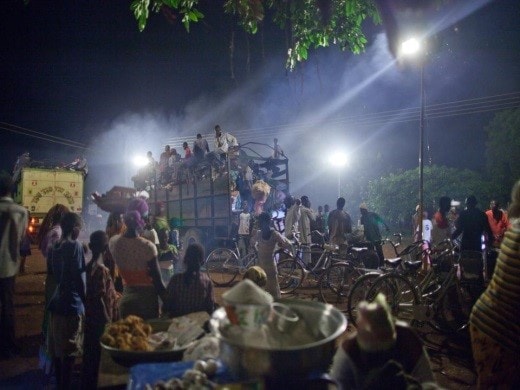
Outdoor and Indoor LED Lighting
An efficient and durable LED lighting infrastructure enables increased security as well as longer opening hours at the CLC Community Life Center. Outdoor lighting is an important module of the CLC solution. Philips’ pilots with outdoor lighting in off-grid areas have shown that outdoor lighting extends the day by several hours, and this opens up opportunities for social and economic activities in the evening which can potentially provide local revenue streams.
As well as outside lighting, Philips illuminates the health clinic with interior LED-lighting which allows it to operate at night, when the majority of labor and deliveries are likely to take place.
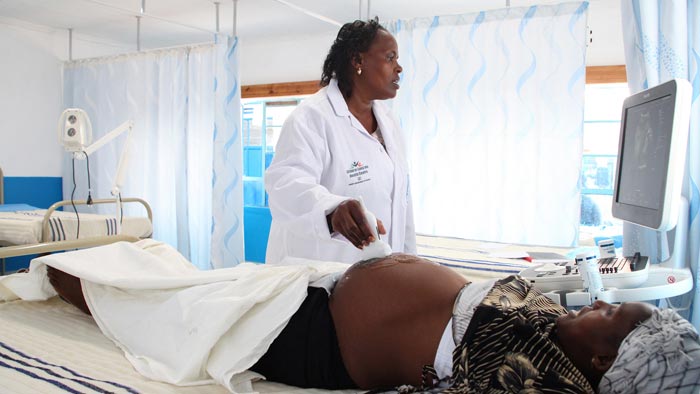
Philips diagnostic and treatment innovations
For many years Philips has been advancing the healthcare agenda for Africa – providing solutions, innovations and collaborations, with a particular focus on Mother and Child Care. Philips provides the CLC with a broad range of patient monitoring, diagnosis and triage equipment to enable community health workers to identify high-risk pregnancies at an early stage and thereby, hopefully reducing the rate of infant and maternal mortality. An example of a locally relevant innovation that empowers health workers in a community care setting is the Philips Wind-Up Fetal Doppler. Weighing less than 600 grams, the Philips Wind-up Fetal Doppler is fully portable, simple to operate, and measures fetal heart rates. The Philips Wind-Up Fetal Doppler has built-in batteries that provide up to 10 hours of use, and when no mains supply is available, cranking the wind-up handle for one minute provides power for up to 10 minutes of operation.
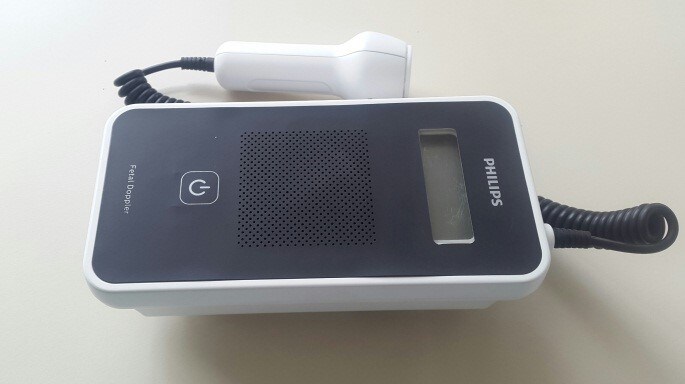
However, providing medical equipment is pointless if the health workers are not trained on how to use them properly. Statistics from the World Health Organization (WHO) show that close to 50% of healthcare equipment in Africa isn’t used because there isn’t enough staff educated on how to use the technology. To respond to this need, Philips ensures health workers at the CLC receive continuous training and coaching, this means that the community will truly benefit from the equipment.
Philips Community Life Center is more than just technology
Philips designed the CLC solution to be modular and scalable so that it can be customized to the specific needs and circumstances of any particular area and health facility. The success of the Community Life Center in Kiambu presents compelling evidence that such schemes, in collaboration with governmental and private partners, can be replicated across Africa and in other parts of the world to strengthen the community and primary care levels of healthcare systems - improving both preventive and curative healthcare as well as social and economic development. Projects are typically funded by governments with support from donors. Philips is also offering this solution as a Managed Service, where governments pay a flat service fee that covers both the equipment and all associated services.
About Royal Philips
Royal Philips (NYSE: PHG, AEX: PHIA) is a leading health technology company focused on improving people's health and enabling better outcomes across the health continuum from healthy living and prevention, to diagnosis, treatment and home care. Philips leverages advanced technology and deep clinical and consumer insights to deliver integrated solutions. Headquartered in the Netherlands, the company is a leader in diagnostic imaging, image-guided therapy, patient monitoring and health informatics, as well as in consumer health and home care. Philips' health technology portfolio generated 2016 sales of EUR 17.4 billion and employs approximately 70,000 employees with sales and services in more than 100 countries. News about Philips can be found at www.philips.com/newscenter.
Topics
Contacts

Radhika Choksey Head of Brand, Communications and Digital Philips Africa Tel: +31 62525 9000
Email: radhika.choksey@philips.com
